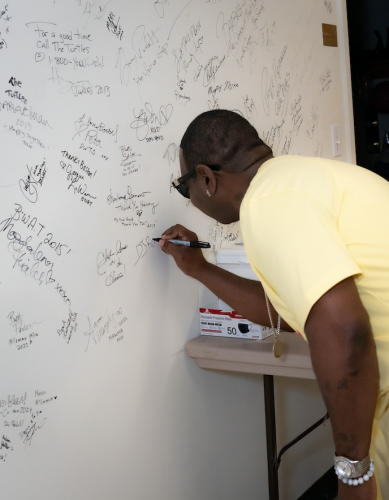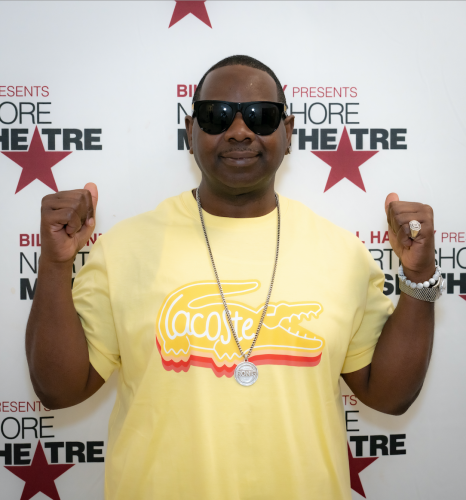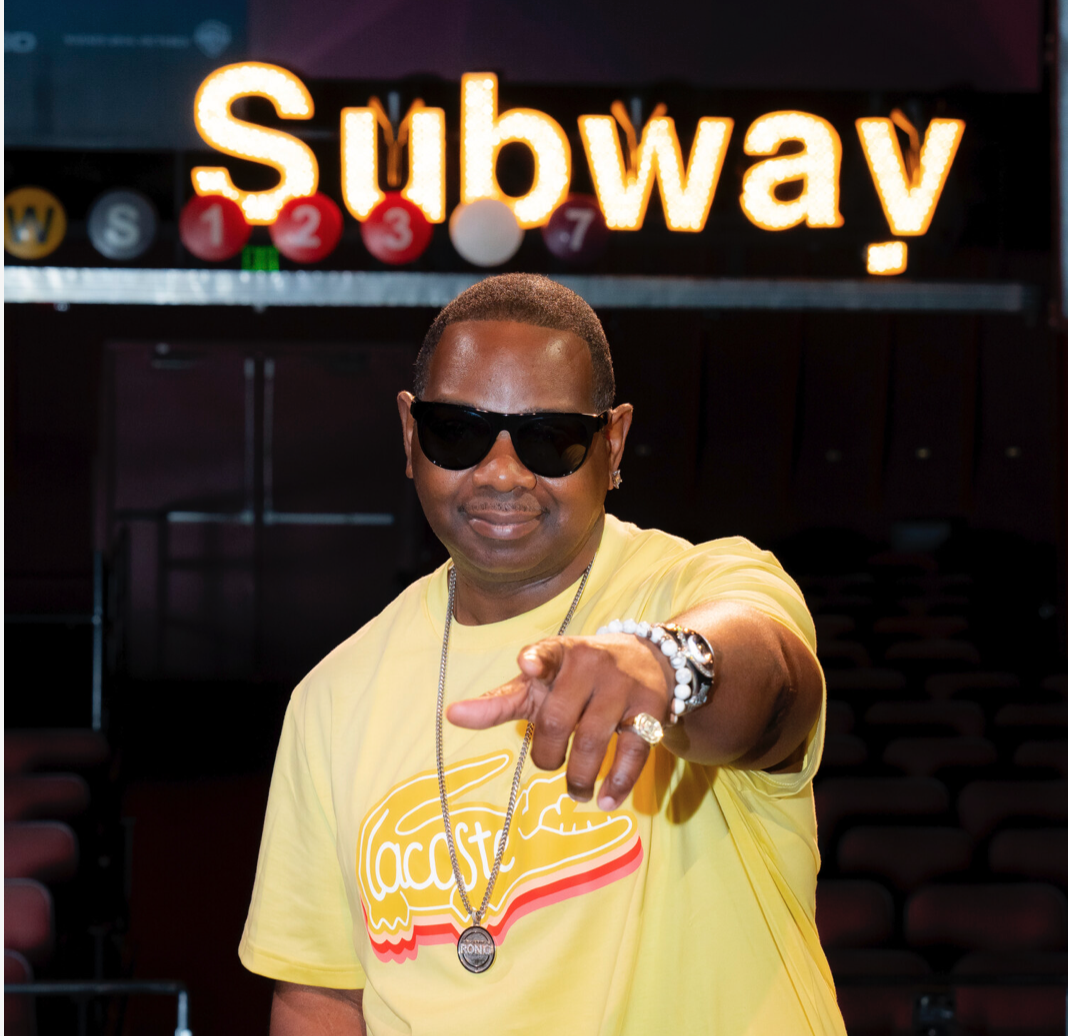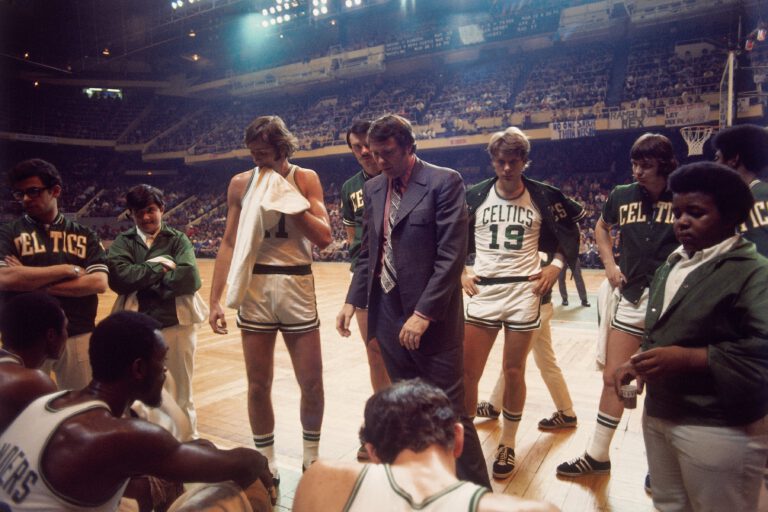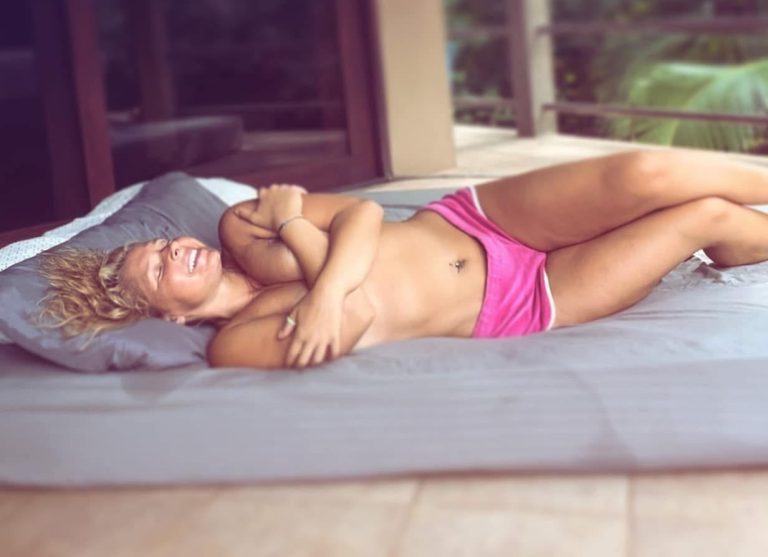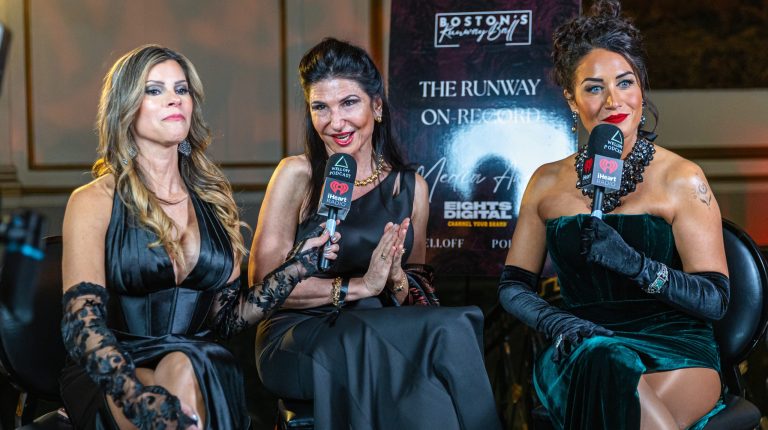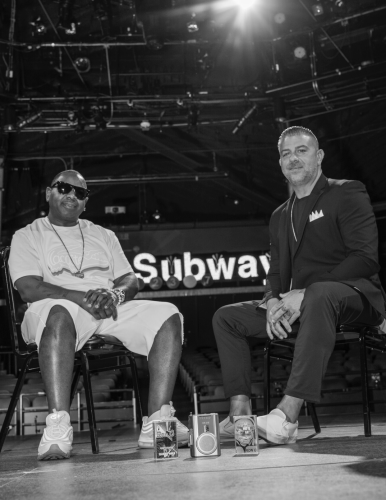
“Peace to Ron G, Brucie B, Kid Capri.. Funkmaster Flex, Lovebug Starski..”
IT’S perhaps the greatest shoutout on the greatest song by the greatest artist in the history of hip hop.
Actually, hold that thought.
It’s arguably the greatest shoutout on the greatest song by the greatest artist in the history of MUSIC. Agree or disagree, JUICY by the Notorious BIG is deservedly in that discussion.
And when Biggie paid homage to the DJs that helped pave the way and held it down for him on his most globally acclaimed record, the first one he mentions is The Legendary DJ Ron G, originally from Harlem and now proud to call Boston home.
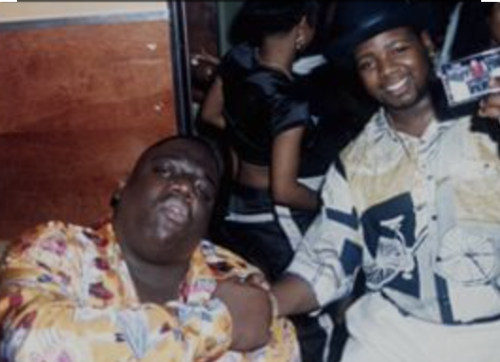
On Sunday morning August 18th, with an empty arena and a circular stage as our backdrop at North Shore Music Theater in Beverly; I had the opportunity of a lifetime to engage in a candid conversation with The Legend himself, DJ Ron G: mixtape pioneer, hip hop royalty, Grammy recognized DJ and producer, hip hop 50 honoree, and above else -an honorable man.
INTERVIEWING the legendary DJ Ron G was not just an opportunity—it was a journey through hip-hop’s rich history. As a fellow DJ with 30 years in the game, I knew this conversation was going to be something special. Ron G is a name synonymous with the birth of hip-hop in New York, and his influence on the entire culture is undeniable. From the gritty streets of Harlem to the heights of music history, he’s been a driving force behind some of hip-hop’s most memorable moments.
In the 1990s, Ron G revolutionized the mixtape scene by seamlessly “blending” the soulful harmonies of R&B with the raw street beats of hip-hop, setting a standard that many have tried to emulate but few have matched. His mixtapes were more than just collections of tracks—they were cultural statements, capturing the essence of an era. His collaborations with icons like Tupac, Biggie, and Fat Joe are a testament to the mark he’s left on the industry.
Ron G has always been ahead of his time, never content with just being a DJ in the traditional sense. His innovative approach has shaped the evolution of hip-hop, paving the way for future generations of producers, MCs, and DJs. From the early house party days to his current work with Apple Music, Ron G’s career has been a colorful journey defined by creativity and a relentless drive to push boundaries.
During our interview, Ron shared insights into his creative process, his evolution as an artist, and his vision for the future of hip-hop. It was both a privilege and a pleasure to sit down with one of the genre’s true legends and hear his story firsthand.
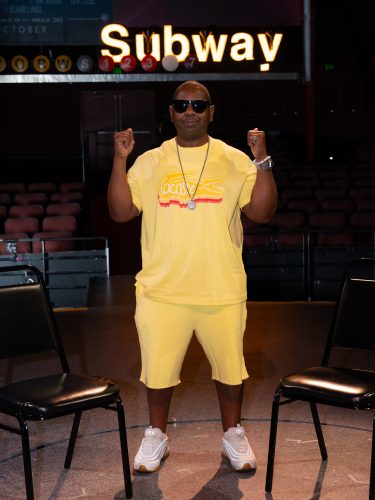
617: You’ve been called the mixtape king, and that’s even in the book too, and a pioneer of blending R&B and hip-hop. How did you come up with the idea to merge the genres together?
Ron G: My mother loved soul music—artists like Lou Rawls, Teddy Pendergrass, Diana Ross, and Michael Jackson. Meanwhile, I was a huge fan of Grandmaster Flash and the whole hip-hop scene. I was around 10 years old when I really started getting into hip-hop, living across the street from Rucker Park, where they had block parties. My mom hated hip-hop, though. She kept telling me to turn it down and wanted me to listen to her music instead. So, I tried to combine her music with mine.
I started mixing her soul records from cassette tapes with my hip-hop tracks on a little turntable I had. It took some time to figure it out, but I eventually got my dad to help me get two turntables and a mixer. I’d mix the records, let my friends hear them, and they could see where I was going with it. The hustlers in my neighborhood started asking me to give shout-outs to their girls and play something special. That’s how I created my first tape, ‘Mixes One,’ by blending Michael Jackson songs with hip-hop beats. Everyone loved it, and that’s how I developed my signature style with the Blends.
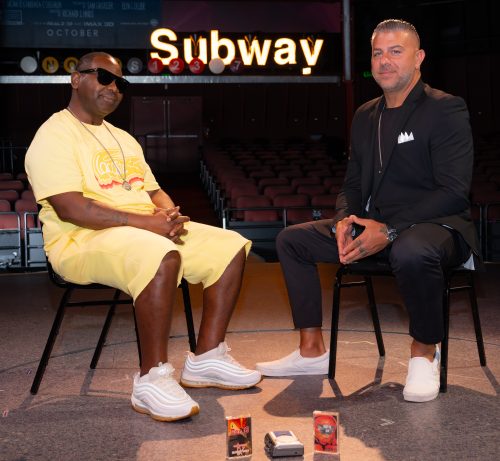
617: You are credited with creating that “blend style”, which is now known as mashup and remixes. Where did the word even come from? Is that something you created? Was that thrown out somewhere? Do you even remember how that came about?
Ron G: Honestly, I don’t remember exactly how the term came about, but I do recall doing a Yo! MTV Raps special with Fab 5 Freddy. I had three turntables set up, and I was mixing Jody Watley with Ed OG and the Bulldogs, along with another record. Fab 5 Freddy was talking to DJ Kid Capri, who was there while I was doing my set. He said, ‘He’s basically doing a remix.’ That was the first time I heard the word ‘remix’ used in that context.
From there, the term started to become popular, and other people began using it as well. But I never called it a remix; I always referred to it as mixing or blending. That’s how the term started getting recognized in hip-hop. Once I heard Fab 5 Freddy say it, I thought, ‘Okay, this is something new.’ You can even find that footage on YouTube if you look it up.
617: What was the hip-hop scene in New York when you first started? How did it shape your approach to DJing? Were there certain people that you heard like, “this is me,” or certain artists that you were like, “I want to stay away from that”? What was that scene, especially in your local neighborhood? What was it like?
Ron G: I wanted to be involved in everything, no matter what. Back then, hip-hop was super creative. You had all kinds—good hip-hop, negative hip-hop, conscious hip-hop, love for hip-hop. There were so many different styles, from LL Cool J to Run-D.M.C. to Dougie Fresh. It was a mix of everything. I was really inspired by Dougie Fresh, Red Alert, and the Hustlers in my neighborhood. Those were my main influences, along with mixtape DJs like Kid Capri, Star Child, Lovebug Starski, and Brucie B. They were big in the mixtape scene at that time.
But for me, it was Doug Fresh, Slick Rick, Run-D.M.C., Grandmaster Flash, Melle Mel, and Spoonie Gee who really sparked that fire. When Run-D.M.C. dropped ‘My Adidas,’ I knew I had to be part of this culture. That’s when I said, ‘I want in.
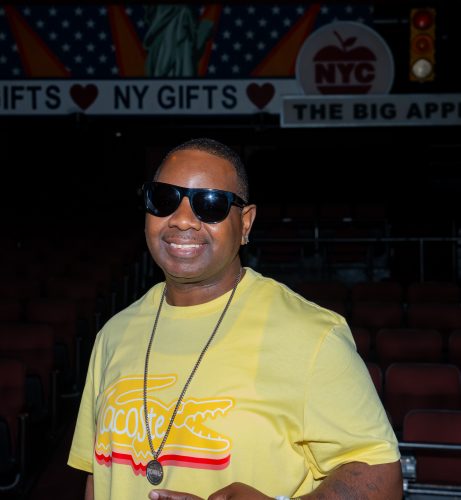
617: We know fashion played a big role in Hip-Hop culture, especially at that time. Did that have any influence on what you were doing, just the way that the neighborhoods would take to fashion and the way that hip-hop kind of brought that culture in as well?
Ron G: Yeah, definitely. In Harlem, everyone likes to dress like they’ve got a million dollars—that’s just the Harlem style. So, the inspiration was always there. Once people got involved in hip-hop, with folks like Doug Fresh leading the way, everyone in Harlem wanted to look sharp. Doug Fresh was a big inspiration for dressing well; he always had the diamond chains, nice jeans, and sleek shirts. People were drawn to his style, and it made us all think, ‘Okay, I want to do that too.’ Back then, there was this saying that hustlers wanted to be rappers and rappers wanted to be hustlers. That’s just how it was.
617: Can you share, for all the readers, a moment from your early days in the mixtape game that significantly impacted your career, like something that you can remember now: I’m so happy I did that because that brought me here?
Ron G: Having Tupac come to my studio really changed my life. At that time, I was close with Biggie, who was about to sign with Bad Boy. He was excited, telling me it was going to be huge. Biggie was opening for Tupac at a club in New York and invited me to support him. I showed up, and he introduced me to Tupac, saying he had already talked to him about me. My studio was a known spot where rappers came to drop verses for mixtapes—it was like a promotional hub.
So, I approached Tupac at the club, told him I was a fan, and asked if he could drop 16 bars at my place. He already knew about me through Biggie, which made it easier for him to feel comfortable. Plus, Tupac was originally from Harlem, and although he moved around a lot—from Harlem to Delaware, then to Oakland—he had this vibe that reminded me of myself, always moving but staying out of trouble. That connection, that moment when he came to my house, really propelled my career forward. It’s a moment I’m so grateful for because it truly brought me here.
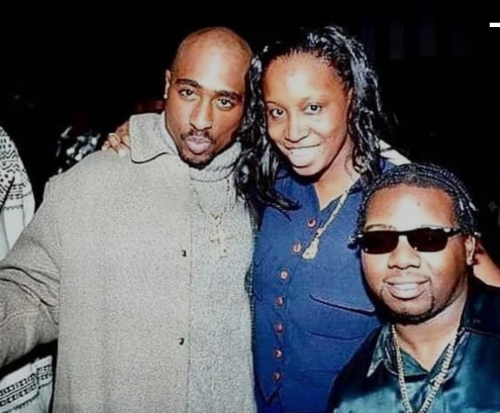
617: So how has the art of DJing changed since you first started? And what do you think of the current state of DJ culture, not the current state of hip-hop? That’s a whole other conversation, But the current state of DJing and the people that are doing it today.
Ron G: I think it’s a wonderful thing how DJing has evolved with technology. It’s made things so much easier for us. We don’t have to lug around 20 crates anymore. Before, you needed an entourage just to help with all the gear, and at the end of the night, after paying everyone, you’d be left with just a little for yourself. Technology has definitely improved that aspect.
I love the DJing lifestyle, always have. It’s just advanced now with more technology available. You just have to adjust, keep up with the times, and really know your music. But honestly, I could never say anything negative about DJing. It’s a passion, whether you’re carrying 50 crates or just a laptop.
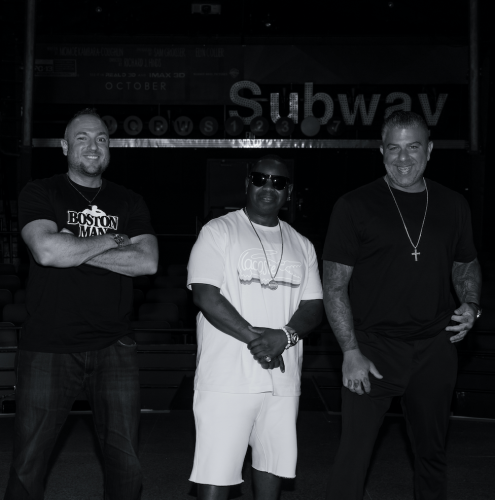
617: Your mixtapes have influenced many, many DJs and artists, but what advice would you give to an aspiring DJ, somebody young, somebody trying to do it, for real, who really wants to do it? What would you give them for advice, like just trying to make their mark today?
Ron G: My advice to aspiring DJs is simple: stay focused, and always have a Plan B. Back in the day, there weren’t as many DJs, and getting noticed might have been quicker. Today, with so many out there and the ease of starting, you’ve got to stand out. I made my mark with a signature sound—people could recognize a Ron G mix by the music or my voice. That’s crucial: be creative and give people something memorable.
Never give up and always be learning. I taught myself everything about DJing, from A to Z. I didn’t have a mentor; I learned from friends and just immersed myself in the scene. I remember hanging out at my friend’s house—his brother was DJ Chill Will from Doug E. Fresh’s crew—and picking up tricks from watching them.
For the young DJs today: Push the boundaries of creativity, educate yourself deeply in music, and know what you want to achieve. And remember, have a Plan B. If things don’t pan out, or if life takes a different turn, you need something to fall back on. Love for DJing is essential, but it’s also important to have support and a backup plan, because you can’t DJ forever. But as long as you’re getting booked, keep spinning those decks!
617: What do you think is the future of the DJ in today’s music world?
Ron G: It has become important to consider that DJs are not just entertainers. The role of a DJ has also changed into the role of the storyteller, the role of the curator, and the role of the producer. Following these changes, IT allows DJs to interact with crowds in new ways and experiment with various sonic panoramas.
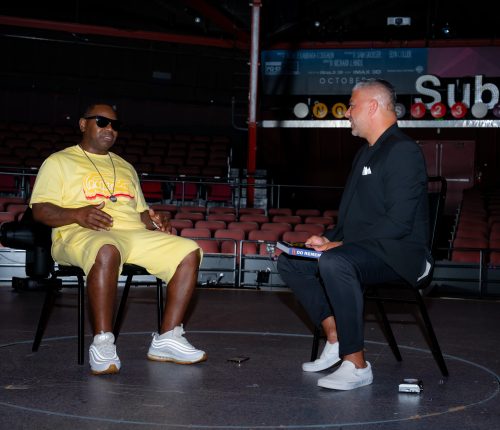
617: I want to know about a specific moment, if you can remember, when you realize that your work was influencing the culture, not the other way around. Was there any defining moment you’re like, “oh shit,” like I did that?
Ron G: Yeah, I realized I was influencing the culture when I started hearing records that sounded familiar, and I was like, ‘Hold on.’ Ms. Jones would call me up saying, ‘We did this first.’ And that’s when it clicked. Our mixtapes weren’t like a record label; this was street stuff. When we put out these mixes or someone sang on my mixtapes, it sparked ideas. Soon, someone would take that creative spark, sign it with a record label, and make millions. That’s what started to happen.
We began to see our influence on the game and decided not to point fingers but to recognize that we were inspiring the music industry. Ms. Jones, she was fiery, always ready to go off on someone. Me, I’m more laid back—I try to stay out of the drama unless I really need to step in.
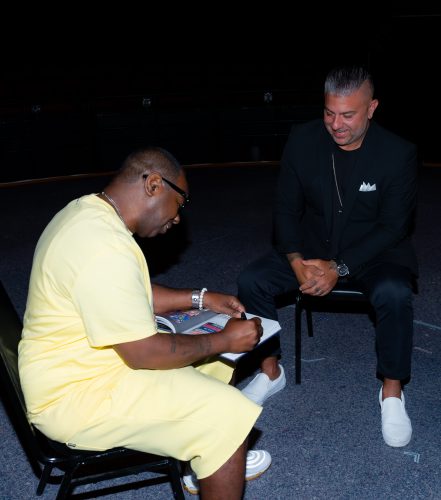
617: Just what kind of challenges did you face that you felt like you had to overcome to become where you are today?
Ron G: One major challenge I faced was transitioning from being a mixtape DJ to a music producer. In the mixtape world, music producers, record labels, and radio stations often viewed you differently. They saw you as just a mixtape DJ, not someone who could produce music at a higher level. I was already blending and creating through my mixtapes, but producing involves deeper skills like reading music and developing artists.
Radio stations particularly overlooked mixtape DJs because we played what they couldn’t, and we gained a type of recognition and fame that their radio personalities didn’t achieve. This led to me being excluded from certain radio events. Even some producers I admired would dismiss me, saying, ‘We like you, Ron, but you’re just a mixtape DJ.’ This kind of attitude limited my opportunities to branch out.
Despite making a significant mark as a mixtape DJ in hip-hop, when I tried to venture into other areas, people still saw me as just a mixtape DJ. Other producers sometimes saw me as just a beat maker, someone who remixes others’ work, not a true producer—especially if you hadn’t attended the same schools or learned in the same classes they did.
These challenges persist even today. With everything going digital and the rise of AI, the field is transforming. However, this new world also means traditional producers can’t hold onto their old views. Now, it’s a whole different playing field, which levels some of the previous barriers I faced.
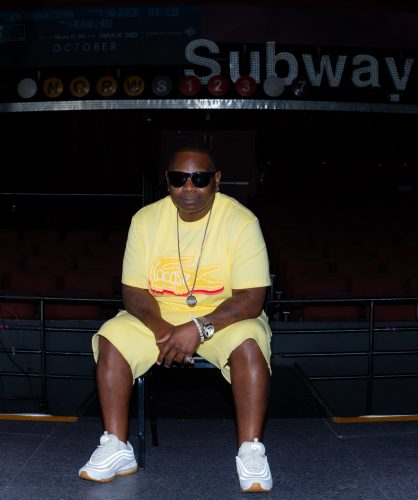
617: Looking back and reflecting, maybe one point that you’re most proud of, professional-wise?
Ron G: Okay, so one of the things I’m most proud of is my journey from DJ to producer, especially producing records for artists whose tracks I used to spin on my mixtapes. Like, I worked on the ‘One More Chance’ remix for Michael Jackson. I also got to work with Fat Joe on ‘We Thuggin,’ which went Platinum. Many of these artists were folks whose music I used to remix on my mixtapes, and then I ended up producing Platinum records for them.
I’ve also collaborated with ‘The Lost Boys,’ on ‘Me and My Crazy World,’ and I produced ‘All I Have’ for Jennifer Lopez and LL Cool J. Big shout out to Corey Rooney; we teamed up on that. So, I’ve had the chance to produce some great records, make good money, and build lasting relationships with these artists.
Those are definitely the highest points in all my years in this game, and I really treasure the opportunity to have worked with such talented people. I’m just really happy about getting to create real good music for them and helping make those records sell big.
617: What more is there to come for DJ Ron G?
Ron G: Well, what’s next for me, what I’ve been cooking up lately is, I want to revamp some of the R&B artists from the ’90s. That’s my main goal. I’ve been low-key about it, but I might be working on something with Jeff Redd. And I’m also collaborating with Ms. Jones; we’ve done some stuff, but she’s balancing her radio career right now. My vision is to take these ’90s R&B artists, slap that Ron G sound on them, and reintroduce them today—kind of recycle what we did back in the ’90s. We’re talking about bringing back music from the original artists, but giving it a fresh spin.
For instance, I recently reached out to Jeff Redd with some tracks, and he was blown away. It sparked this idea: what if we did this all over again, but not just on mixtapes? What if we re-released this music with the original artists and tried to sell records again, changing the music scene once more? There are folks remixing these old ’90s tracks with new artists, but imagine bringing back the legends who first made them.
It’s a big goal for the next few years, and it’s challenging. Record companies today aren’t as open to investing like they used to be, especially in ’90s artists. Many of these artists might have to fund their comebacks themselves and work with distribution companies to see if we can turn things around so that ’90s artists can shine again. Everyone’s still touring, so the fanbase is definitely there.
If I can get a record company to back this vision, it’s a wrap. I remember wondering about Ms. Jones, asking around, ‘Where is Ms. Jones?’ until Rob Love from Def Jam connected us. Seeing her get back in the game was incredible. We need to bring these artists back, bring back that feel-good music. That’s my mission—if a label sees what I see, we’re going to make something special happen.
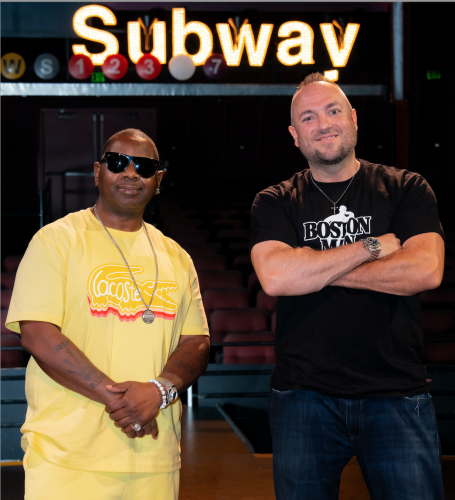
**
INTERVIEWING DJ Ron G wasn’t just about asking questions—it was about learning from a legend who has spent over 30 years shaping the hip-hop landscape. As someone who has devoted the last 30 years to entertainment himself, this conversation was incredibly enlightening. Being offered the chance to speak with a pioneer like Ron G, who has left such a unique mark on hip-hop, was an opportunity I couldn’t pass up. His passion for music and his innovative approach has made him a true icon in the game.
Hearing his insights on blending hip-hop with R&B and his perspective on the genre’s evolution was both inspiring and educational. This experience not only deepened my appreciation for Ron G’s contributions but also rekindled my own passion for hip-hop. The honor of witnessing firsthand why The Legendary DJ Ron G remains an irreplaceable force in today’s urban music scene was a privilege I’ll never forget.
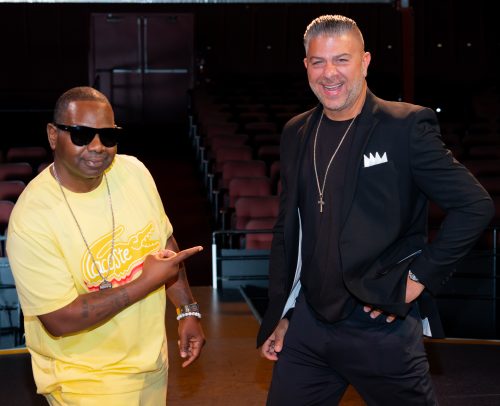
**
On behalf of The Legendary DJ Ron G and everyone at BostonMan Magazine and The 617 Event Group we would like to say an extra special ‘THANK YOU’ to Bill Hanney, Karen Nascembeni and Heather Romani at North Shore Music Theater for graciously providing their facility and stage to us for this photoshoot. It was a perfect fit!
